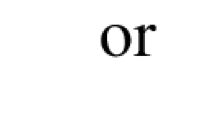Abstract
Let G be a simply connected semisimple complex Lie group and fix a maximal unipotent subgroup U- of G. Let q be an indeterminate and let B* denote the dual canonical basis (cf. [19]) of the quantized algebra Cq[U-] of regular functions on U-. Following [20], fix a ZN ≧0-parametrization of this basis, where N = dim U-. In [2], A. Berenstein and A. Zelevinsky conjecture that two elements of B* q-commute if and only if they are multiplicative, i.e., their product is an element of B* up to a power of q. To any reduced decomposition w0 of the longest element of the Weyl group of g, we associate a subalgebra Aw0, called adapted algebra, of Cq[U-] such that (1) Aw0 is a q-polynomial algebra which equals Cq[U-] up to localization, (2) Aw0 is spanned by a subset of B*, (3) the Berenstein–Zelevinsky conjecture is true on Aw0. Then we test the conjecture when one element belongs to the q-center of Cq[U-].
Similar content being viewed by others
Author information
Authors and Affiliations
Corresponding author
Rights and permissions
About this article
Cite this article
Caldero, P. Adapted algebras for the Berenstein-Zelevinsky conjecture. Transformation Groups 8, 37–50 (2003). https://doi.org/10.1007/s00031-003-1121-3
Published:
Issue Date:
DOI: https://doi.org/10.1007/s00031-003-1121-3



